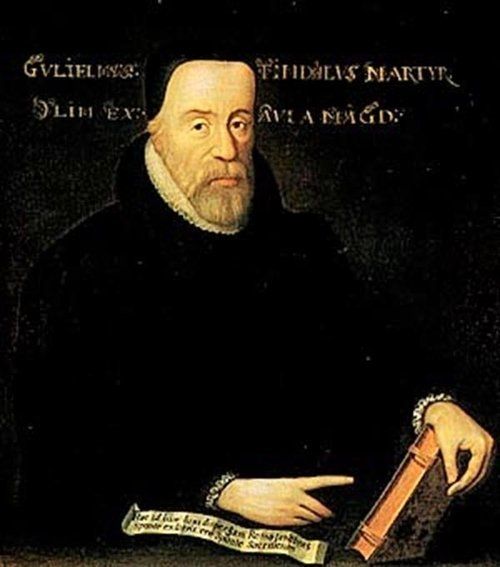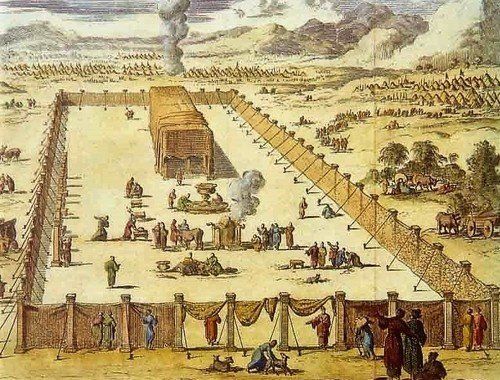Last month we considered this subject historically. Now we shall consider it doctrinally. In so doing, we shall begin to mark the leading distinctives of a Reformed church.
A Reformed church believes that the Bible in its entirety is God’s written Word, without error or fault of any kind; and it also believes that the Bible is the sole authoritative expression of the divine will for all aspects of church life.
This was certainly the view of the great Reformers. We find Luther, for example, referring to the Scriptures as ‘pure truth’ which ‘cannot err’. Calvin affirmed the divine nature and total veracity of the Holy Scriptures, describing them as ‘infallible oracles’ which inspiration has rendered ‘free from every stain and defect’. Indeed, he goes as far as to say, ‘We owe to the scripture the same reverence which we owe to God; because it has proceeded from him alone, and has nothing belonging to man mixed with it.’
The Puritans make many similar assertions. In his Body of Divinity, Edward Leigh explained ‘the divine authority of the Word’ in terms of it being ‘perfectly true in word and sense’. Afterwards, he emphasized the point by asserting: ‘There is no mixture of falsehood or error, no corruption or unsoundness at all in it.’ William Perkins was just as explicit, arguing forcibly that the Scripture is unique in its inerrancy: ‘The writings of men be full of darkness, of error and deceit: but the Word of God is most holy and pure, and every way perfect.’

For Calvin and the Puritans, however, God’s Word was also the ‘sceptre’ by which he ruled his church or special kingdom. As William Tyndale wrote: ‘In the kingdom of Christ, and in his church or congregation, and in his councils, the ruler is the scripture…’ His exhortation was as follows: ‘Without God’s Word do nothing. And to his Word add nothing; neither pull anything therefrom… Serve God as he hath appointed thee…‘
This is a thoroughly biblical principle. In every age, God has settled by his own authority the precise form of the church; and, even now, a complete system of regulations exists, making it clear that God has left nothing to be decided by human prudence or discretion (except mere ‘circumstances’ concerning worship and government). The arguments in support of this position need to be carefully considered.
Christ the Head of the church
The Lord Jesus Christ is sole Head of his church.1 He exerts this headship not only internally in the hearts of his people but also externally in the church’s visible organization.2 A king who thus reigns must be the one and only ‘law-giver’.3 His will alone constitutes the rule of his kingdom.4
Christ reigns by his Word
Christ reigns over his church by his Word5 and that Word, written down through the Spirit’s inspiration, is an infallible, authoritative, and all-sufficient standard.6 Here we are told, among other things, how to behave in the house of God; and since that is one of the ends for which the Scripture has been given, it is impossible to believe that it has deficiencies which require acts of human legislation. No, Scripture is ‘perfect’;7 and we are expressly forbidden to make our own additions or to observe other people’s enactments.8
The called-out church
Only by being constituted and ordered by Christ’s Word is the church able to live up to its calling as the church of Christ.9 If just broadly based upon scriptural principles, it can no more be said to be ‘his’ than any other institution in the world; but if wholly framed according to his model and strictly regulated by his laws, the church can be distinguished from other organized societies and show itself to be uniquely Christ’s. ‘As a Son [heir, or lord]’, Christ is described as being ‘over his own house’.10

Rules of engagement
In Old Testament times, directions were given for everything relating to the Jewish church;11 and since the Christian church possesses greater privileges, we cannot suppose for one moment that she is now denied a detailed constitution and left confused, without a proper order. Indeed, the New Testament itself argues otherwise: that as Moses was faithful in delivering many particular directions, so Christ has been just as precise, careful and unfailing in setting forth the appointments of the New Covenant church.12
Comprehensive direction
It is evident that every regulation for the church’s ministry and service has been supplied: office-bearers have been identified, along with their necessary qualifications, the manner of their calling, and the nature of their work;13 and ordinances have been prescribed, including not only the major ones;14 but also the minor ones.15 Christ, either immediately (in his own person) or mediately (through his apostles), has set down every particular relative to the church’s order, so that nothing has been left to the discretion of men. After detailing a number of matters, the apostle Paul concludes with these words: ‘The rest will I set in order when I come’.16 He does not say: ‘The rest you can arrange’ but rather ‘The rest will I set in order.’ This amounts to an express declaration that the church’s affairs are matters of divine arrangement.
Name above every name
The church is required to do everything ‘in Christ’s name’: that is, ‘by Christ’s authority‘; whether it be assembling, preaching, praying, singing, baptizing or disciplining.17 Is it not clear from these words that the church can do nothing in the name of ministers, synods or assemblies? Beyond the limits of what Christ has expressly appointed, the church can have no authority for its actions. We may therefore conclude that since the duties of a church-state can only be performed at his command, there must be clear warrant for all of them in Christ’s written and infallible Word.

Blessing ordained by God
The purpose of the church’s ordinances is the blessing of its members; but the effectiveness of ordinances depends entirely upon their being instituted not by men, but by the Lord. Only if he has ordained them (for our benefit) can we confidently hope that they will prove means of grace and effectual to our souls’ good.18 He has promised, in fact, to give power to his own appointments and to work through them for our edification and comfort.19 The sum of the matter is this: since the church can expect no blessing except in divinely instituted ordinances, we must conclude that all its laws, rules, practices are from the Lord and therefore set down in the Holy Scriptures.
We believe that God’s Word is the standard in three important areas.
1. Doctrine. The Scripture alone is the rule of faith to the church. As a result, men are strictly forbidden to add to any of its truths: ‘Every word of God is pure…Add thou not unto his words, lest he reprove thee, and thou be found a liar.’20 Unspeakably solemn is the divine warning: ‘Whosoever transgresseth [literally, “goeth onwards”], and abideth not [“remaineth not”] in the doctrine of Christ, hath not God…’21
2. Worship. ‘What thing soever I command you, observe to do it: thou shalt not add thereto, nor diminish from it’.22 The Lord’s people must not deviate to any degree from Scripture’s clear and precise rule. If they do, they come under that indictment: ‘Their fear towards me is taught by the precepts of men’;23 and the Lord Jesus, when quoting these words, declared that any worship performed on that basis will inevitably prove ‘in vain’ or ‘to no purpose’.24
3. Government. There has always been a divinely appointed form of government for the church. Under the New Testament economy, the Lord Jesus – as absolute Monarch – has invested authority in certain office-bearers, that they might rule under him for the well-being of his people. These are the bishops or elders; and, according to the New Testament, every regularly appointed teacher is one of them,25 as also are those rulers whose responsibility it is simply to govern.26 There should be a council of such officers in every church.27 This government may properly be said to be of ‘divine right’ (i.e. divinely instituted); and, plainly, it has not been left to the wisdom of men to select and adopt their own preferred form of government. Any attempt to do so can only be regarded as a usurpation of the prerogative of Jesus Christ, the King of Zion.
A precise and determinate rule has been given for doctrine, worship and government. We pray and long for the time when our churches will acknowledge their many deviations and reform themselves according to the standard of Scripture.
Malcolm H. Watts
1 Psalm 2:6; Isaiah 9:6-7; Luke 1:32-33; John 18:36; Colossians 1:18
2 Matthew 28:18-20; Acts 1:2; 1 Corinthians 12:28
3 Isaiah 33:22; cf. Matthew 23:10
4 Isaiah 2:2-3; cf. Matthew 23:8-10
5 Psalm 45:3-6; 110:2; Matthew 13:19
6 Luke 10:16; 1 Corinthians 11:1-2,23-26; 2 Timothy 3:16-17
7 Psalm 19:7
8 Proverbs 30:6; Matthew 15:9; Colossians 2:20-22
9 Matthew 16:18; Romans 16:16
10 Hebrews 3:6
11 Exodus 25:40
12 Hebrews 3:1-3
13 Matthew 16:19; 28:19-20; Acts 6:2-5; 14:23; 1 Timothy 3:1-13; Titus 1:5-9
14 Matthew 10:7; 18:15-17; 28:18-19; Mark 14: 22-25
15 1 Corinthians 11:2-16; 1 Timothy 2:8-10; 5:3-10
16 1 Corinthians 11:34
17 Matthew 18:20; Acts 4:17-18; John 14:13-14; Colossians 3:16-17; Acts 2:38; 1 Corinthians 5:4
18 Deuteronomy 10:13; 1 Samuel 12:21; Matthew 15:9
19 Exodus 20:24; Matthew 28:20; Acts 2:41-47
20 Proverbs 30:5-6; cf. Revelation 22:18
21 2 John 9
22 Deuteronomy 12:32
23 Isaiah 29:13-14
24 Matthew 15:9
25 1 Timothy 5:17; Hebrews 13:7
26 Romans 12:7-8; 1 Corinthians 12:28; 1 Thessalonians 5:12
27 Acts 14:23; James 5:14









